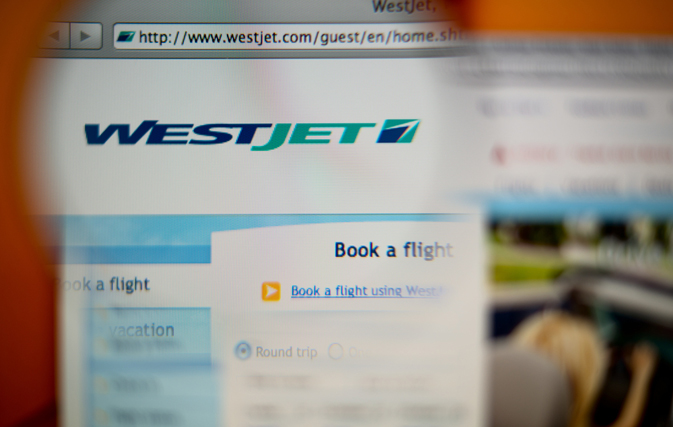CALGARY — WestJet says it will use low fares to compete with its new discount rival NewLeaf, but says its “ancillary revenue” will come only from extra fees that it thinks will “add value” for its guests.
WestJet’s Chief Financial Officer told an investor conference yesterday that they won’t follow NewLeaf by charging passengers for carry-on baggage or for printing boarding passes at the airport.
“We want to grow our ancillary revenues but we want to grow it through the things we think add value to our guests and their experience with us,” WestJet CFO Harry Taylor told an AltaCorp Capital conference webcast from Toronto.
NewLeaf, which begins service next month, plans to start with two planes flying among seven secondary airports in Canada.
Its website clearly courted the budget traveller when its launch was announced Jan. 6, saying: “Your fare gets you the two essentials: a seat and a seatbelt. The rest is up to you.”
WestJet began charging a $25 baggage fee for economy flights to Europe after Jan. 6, and has raised fees for some reserved seating, in order to generate between $15 million and $25 million in additional revenue this year.
Meanwhile an air passenger advocate is raising licensing concerns with Canada’s new ultra-low-cost air travel company, NewLeaf.
Halifax-based Gabor Lukacs says people should be alarmed that it’s an unlicensed company, saying that leaves passengers with a financial risk.
NewLeaf is partnering with Kelowna-based Flair Airlines. NewLeaf, based in Winnipeg, agrees the company does not have its own operating license from the Canadian Transportation Agency. But NewLeaf president and CEO Jim Young says the company does not need a license because its operating partner, Flair Airlines, already has a license from the agency.
Young says Flair aircraft and staff will be used for NewLeaf flights. “All the same terms and conditions and contracts of carriage exist with Flair as they would exist with NewLeaf,” Young told CTV News. “We’re selling seats on Flair Airlines as a result of the NewLeaf brand, so customers should have no concerns at all.”
While Lukacs supports more competition in the aviation industry, he says the licensing arrangement between NewLeaf and Flair could leave passengers in financial limbo if baggage gets damaged or lost during a flight sold through NewLeaf, or if the company cancels or delays a flight.
“It’s a question of who has commercial control, who sets the schedules, who decides what the terms and conditions are and there are some very practical problems with what we see here, which are quite obvious,” he said.
One of the problems stems from confusion around baggage liability within NewLeaf’s General Conditions of Carriage, says Lukacs.
For more information, click here.

